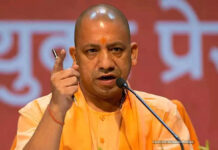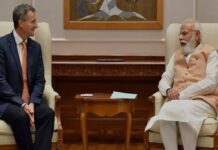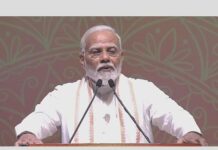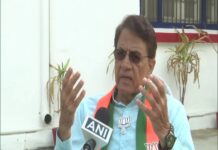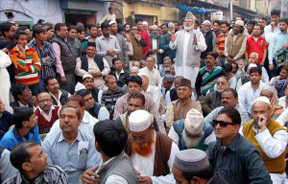 NEW DELHI: National Commission for Minorities today appeared to be critical of NDA government’s suggestion for a law against conversion, saying it will go “against” Constitution and expressed concern over lack of action against people making “irresponsible” comments on conversion issue.
NEW DELHI: National Commission for Minorities today appeared to be critical of NDA government’s suggestion for a law against conversion, saying it will go “against” Constitution and expressed concern over lack of action against people making “irresponsible” comments on conversion issue.
In a resolution passed today, the NCM said reported statements of several “responsible persons in public life” on conversions of Christians and Muslims to Hinduism are causing “serious concern and creating a sense of insecurity” among minority communities across the country.
“Indian Constitution guarantees every citizen the right to freedom of religion and any attempt to curtail this right goes against it. Ours is a secular nation where all religions are given an equal status and all persons are equally entitled to freedom of conscience and the right to freely profess, practice and propagate their religion.
“Claiming religious monopoly for any one religion in a multi-religious, secular state and forcible conversions through inducement, allurement and coercion violate the Constitution, and must be strongly condemned,” the NCM statement said.
The NCM did not name any person or organization. Most controversial statements have come from bodies affiliated to Sangh Parivar which has a close link with the ruling BJP.
These groups have demanded a law against conversion while pushing controversial ‘ghar-wapsi’ events.
These statements have an implicit reference, it said, that Christianity and Islam are not “native” faiths.
“These statements are causing serious concern and creating a sense of insecurity among minority communities across the country… We expresses deep concern that such statements are being publicly made and no action is being taken against the individuals or the organizations making such irresponsible and uncalled for statements,” it said.
The resolution appealed to the government to “prevail” upon all responsible persons in public life to refrain from encouraging religious polarization and creating mistrust and insecurity among the minorities.–PTI

